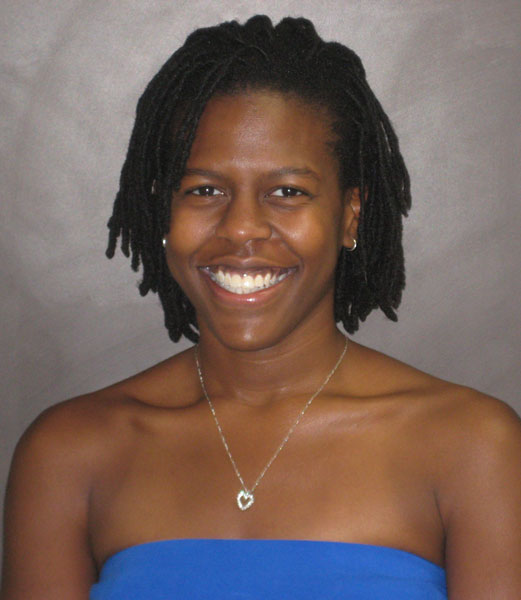By Molly Rossiter
UI Health Care Marketing and Communications

When the College of Public Health announced it was starting a new student ambassador program to put a “face” on the college, Carmen Smith knew she wanted to be a part of it.
“Even though public health is a growing field, I still don't think people truly understand it,” says Smith. “I think it's important to educate people on how broad, diverse, and interdisciplinary public health is.”
Her enthusiasm for the ambassador program is eclipsed only by her excitement about her studies and career path. The 25-year-old fourth-year biostatistics graduate student from St. Louis has traveled to the Gambia in Africa to do research through the Minority Health and Health Disparities International Research Training program offered through the college, and did an internship for the National Institutes of Health (NIH).
“I’ve always been interested in health and health research since I was a little girl,” says Smith, a Dean’s Graduate Research Fellow. “Biostat was a natural fit—I was also a math geek, so this just fit nicely.”
The real clincher, she said, came during her sophomore year of undergraduate studies at Spelman College in Georgia. She attended a conference for undergraduates interested in statistics called StatFest and met people who were doing “amazing things with their careers, all varied but all related to biostatistics.” Those she met included a professor and a researcher for the Centers for Disease Control and Prevention.
“I knew from then on that this was what I wanted to do,” she says.
Smith’s area of focus is in statistical genetics, she says, specifically genome-wide association studies. She’s working to discern the types of genes that cause disease.
“I’m interested in researching how to approach that problem statistically,” she says.
Anyone following a career in public health can virtually make their job what they want it to be.
“I think public health is amazing because it’s really kind of what you make of it,” she says. “It’s really broad, but you can always find your niche and find someone who is interested in the same things you are. I tell students to explore everything, talk to as many people as you can, really try to figure out what it is you’re trying to do.
“The professors here are really open and encouraging to the students,” she says. “I think they really believe that all of us have the ability to do great things.”
She hopes to return to Atlanta or possibly Washington, D.C., to do research—as a professor or a researcher with NIH.
“I know I’ll eventually end up doing something awesome,” she says. “I’ve really enjoyed the experience, especially digging in and doing research from the beginning.”
Until then, she says, she’s working on her dissertation and helping point those with an interest in public health to the various areas in the College of Public Health through the ambassador program.
“All of these opportunities I’ve had have come through my studies of public health. I love to share my experiences,” she says. “Not because I consider myself a 'face' of the college but because I might pique someone's interest. And they can seek similar opportunities in their own way and bring their strengths and unique perspectives to the college or to the whole of public health.”